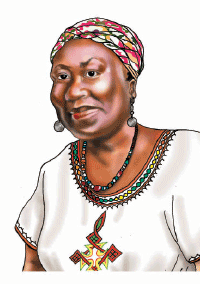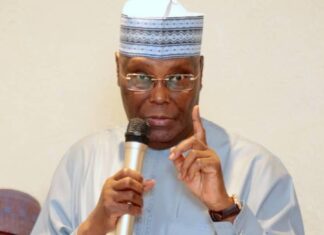An article was published online not too long ago on one of the several Nigeria-focused websites now available (I forget which one precisely), in which Pastor Tunde Bakare, the running mate to President Muhammadu Buhari in the 2011 elections, was said to have declared what material benefits accrued to him directly from President Jonathan and his administration. Titled “What I benefitted from President Jonathan”, the article itself was based on an interview supposedly granted to an Abuja-based newspaper, “The Interview”, by Mr. Bakare, who is quoted as having said the following, inter alia:
“I can tell you what I received. I took two people there one day and he invited us to dinner. I had a bad sore throat that day, so I took a pass regarding the dinner. Another day, I took a couple there and I took a cup of tea. I told you about the $50,000 which I refused, but that was Orubebe. He sent me a cow at Christmas – which I gave the staff to kill – and a hamper through our pastor in Abuja, but I told him to keep it… Finally, when the opportunity came and he (Jonathan) said, ‘I will like to give you something’. I then said, ‘I like pens: so if you must give me anything, let it be a pen, so that I can show it to my people and say ‘the president gave me a pen.’”
The $50,000 mentioned was explained in the interview: on a certain occasion after a meeting with President Jonathan, Mr. Godsday Orubebe, a former minister in charge of Niger Delta Affairs, offered Pastor Bakare the said sum of money “for transport”. According to Mr. Bakare, he turned down the offer, saying: “Haba, take your money; I am not for sale.” In the said interview, Mr. Bakare went on to mention that President Jonathan had once approached him to tell him “the truth” about his administration, and that on some occasion he had given him four issues to which he needed to pay attention. Mr. Bakare then called on everybody, especially “men of God” like him, to come out and declare what they had benefitted personally from President Jonathan. He indicted his colleagues in no uncertain terms: “[Y]ou see, Christian leaders benefitted tremendously from his administration in terms of licences and waivers. The thing is, when you allow those in power to get you into any compromise, speaking to them will be very difficult.”
The various cases involving scandalous levels of corruption, graft and rent-seeking which are purported to have occurred under the watch of former President Jonathan, given the can of worms currently being exposed, to our utter dismay and incredulity, need not only to be thoroughly probed and judged based on the extant laws of the Federal Republic of Nigeria, as is being done by the Buhari administration. More importantly, they ought to become the object of serious study and analysis, furnishing us with vital research data on the dysfunctionalities in our polity, evidenced in our warped thinking and perceptions, our incoherent behaviour and self-destructive actions, in our roles as leaders, public functionaries and ordinary citizens.
That is the reason for dwelling rather long on the Pastor Bakare case, for it raises several pertinent questions: How did Jonathan perceive his role and duty as the country’s president? How should the presidents of a democratic country perceive their role? What is it with us and this culture of “gifts”? Why do/should people in public office believe they owe gifts to those who come to see them? What kind of mentality underlies the giving of $50,000 for “transport” when the cost of a flight ticket between the two cities in the world that are farthest from each other could not be that high? Could there have been a better and more immediate response from Pastor Bakare? What determines the allegiance of Nigerian citizens? Does that allegiance go to a class or group, or to the generality of the populace? Do we believe it is our duty to defend our collective interest at all costs, even if it means blowing the whistle on a leader (whether he belongs to our social, ethnic or religious group or not)?
Finally, based on inspiration received from a recent mail from a British friend who had worked in Nigeria in the 70s and 80s, what are the criteria that elections are SUPPOSED to be about? Our total ignorance of this issue is clearly borne out in the quality of leaders we constantly elect for ourselves – people who under normal circumstances should not be considered for any high office. According to my friend, this is “a grave indictment of us all that such people are indeed VOTED into office.” And of course, President Jonathan is not unique in this respect; most of the leaders we have had, military and civilian alike, have constantly betrayed a fundamental inability to grasp the essence of their call to high office, thinking that it is primarily for personal gain and for extending largesse to a select group of individuals.
While the role of the leader is doubtless important (and blessed indeed is that country that has a competent, visionary individual with integrity as its leader), it is nonetheless critical to have a citizenry that equally understands its crucial duty in defending the interest and wellbeing of the whole against the greed of the few.












